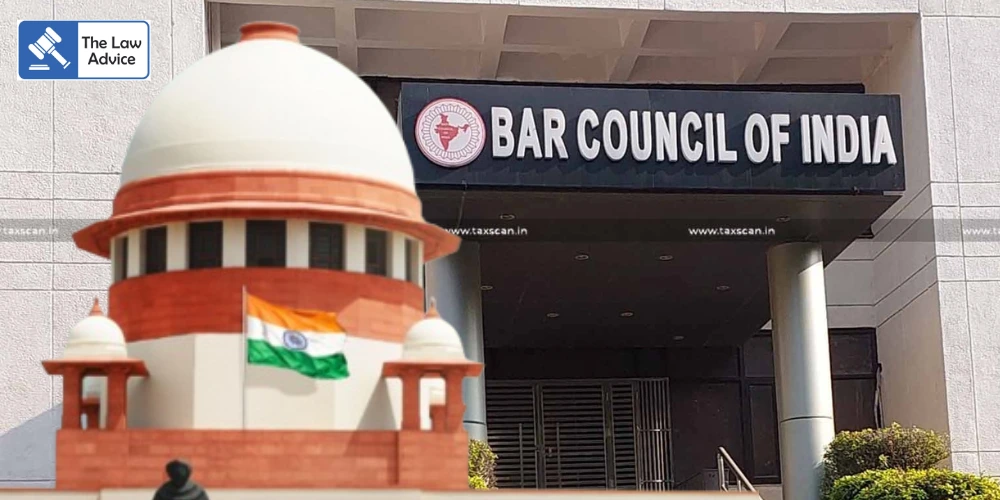
The Supreme Court on Friday (August 22) issued notice to the Bar Council of India (BCI) on a writ petition challenging its recent notification imposing a three-year moratorium on the establishment of new law colleges across the country.
A Bench of Justice Vikram Nath and Justice Sandeep Mehta was hearing the petition filed by Advocate Jatin Sharma, who questioned the constitutional validity of the moratorium. The Court directed the BCI to file its response and listed the matter after four weeks.
The petitioner argued that the blanket embargo on new law colleges is arbitrary, disproportionate, and violative of Articles 14 (Right to Equality), 19(1)(g) (Right to Profession), and 21 (Right to Life and Liberty) of the Constitution. According to the plea, instead of adopting targeted regulatory measures, the BCI has chosen to impose a sweeping ban which stifles competition, innovation, and access to legal education in underserved regions.
“Rather than exercising its statutory mandate under Sections 7(1)(h) and 49 of the Advocates Act, 1961 to inspect, supervise, and take corrective measures against errant institutions, the BCI has opted for a moratorium that has no rational nexus with its stated objectives,” Sharma submitted.
The petitioner further contended that such a restriction disproportionately affects students in backward and rural areas where access to quality legal education is already limited. A case-specific approach, involving strict periodic inspections, audits, and compliance reviews, would be a more balanced measure instead of an all-encompassing prohibition.
The challenge is directed against the Rules of Legal Education (Moratorium), 2025, notified by the BCI on August 13, 2025, which prescribes a three-year ban on approvals for new Centres of Legal Education (CLEs). The Rules also restrict existing institutions from opening new sections, courses, or batches without the prior written consent of the BCI, and any such proposals will undergo rigorous scrutiny and continuous compliance monitoring.
According to the BCI, the moratorium is aimed at halting the unchecked mushrooming of substandard law colleges, which has led to a steady decline in the quality of legal education. The regulatory body highlighted issues such as routine grant of No Objection Certificates by State Governments, mechanical affiliation by universities without inspections, commercialization of legal education, academic malpractices, and shortages of qualified faculty.
The case—Jatin Sharma v. Bar Council of India & Ors. | W.P.(C) No. 799/2025—is now slated for further hearing after the BCI’s reply is filed. The Supreme Court’s decision will likely have far-reaching implications for the future of legal education policy and regulation in India.
Website designed, developed and maintained by webexy